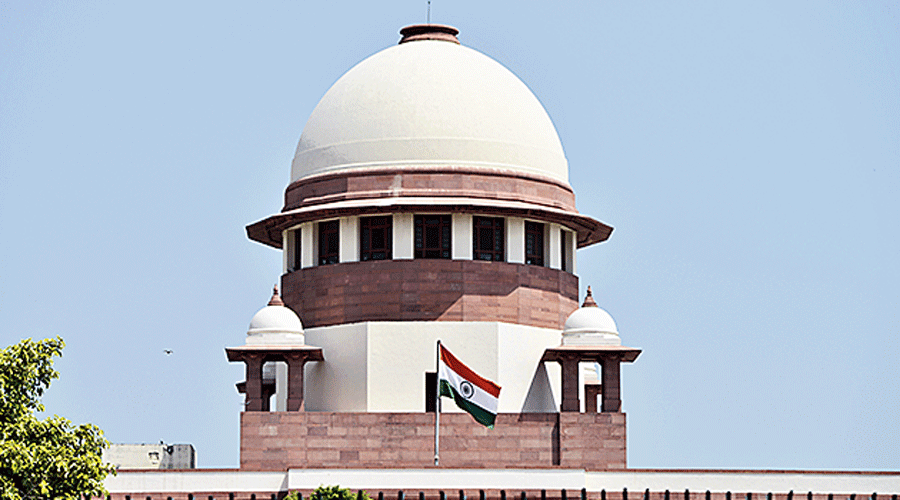A plea was moved in the Supreme Court on Monday challenging the validity of a 1991 law that seeks to preserve the sanctity of places of worship, as well as its applicability to the Gyanvapi and Idgah mosques that some Hindu petitioners want relocated.
The intervention application against the Places of Worship Act, 1991, moved by advocate Ashwini Upadhyay, questions the Centre’s legislative competence in having the law enacted, saying it relates to a state subject.
Under the 1991 law, the character of all religious structures must be preserved as they were on August 15, 1947, except for the Babri Masjid-Ramjanmabhoomi in Ayodhya which was already disputed at the time of Independence.
Hindutva outfits have been seeking ownership of the plots on which the Gyanvapi mosque in Varanasi and the Shahi Idgah mosque in Mathura stand, claiming they were built after demolishing temples.
Upadhyay has argued that the status of a “mosque” belongs only to structures built according to Islam’s tenets and not to those built against the provisions of Islamic law.
“Muslims cannot assert any right in respect of any piece of land claiming to be mosque unless it has been constructed on legally owned and occupied virgin land,” he says.
Upadhyay argues that a temple’s religious character does not change even after the demolition of its roof, walls, pillars or foundation or even after namaz is offered at the spot.
“After the pran pratishtha of (the) idol, a temple is always a temple until the idol is shifted to another temple with the rituals of visharjan,” he says.
According to the application, the 1991 law was enacted under the head of “public order”, which is a state subject, as is “places of pilgrimages within India”.
“So, (the) Centre cannot enact the law,” the plea says.
Besides, the 1991 act “excludes the birthplace of Lord Rama but includes birthplace of Lord Krishna (Mathura), though both are incarnation of Lord Vishnu… hence it is arbitrary.”
“It is submitted that retrospective cut-off date was fixed 15th August 1947 to legalise the illegal acts of barbaric invaders,” Upadhyay says.











